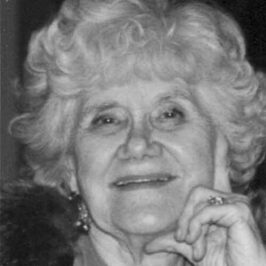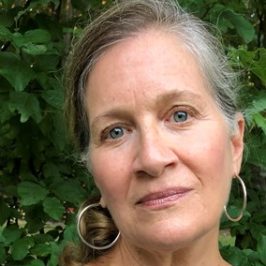
Women’s History Month
Three poems for Women’s History Month, by MaryAnn Miller and Ellen Schmidt (2018 Passager Poetry Contest) and Mary Stone Hanley (2017 Passager Poetry Contest).
6 minutes | Transcript
TRANSCRIPT
On this episode of Burning Bright, three poems for Women’s History Month.
MaryAnn L. Miller said she comes from a family that makes things. Her father was a machinist and gunsmith. Her mother knitted, crocheted, and did needlework. Her sister is a wood turner. Her grandmother made things, too. Here, from Passager’s 2018 Poetry Contest issue, MaryAnn L. Miller’s “Caneletto Validates My Grandmother.”
My grandmother said she
trained as a stone mason
before leaving
Italy at age twenty.
On the voyage from Naples
to New York
she climbed to the crow’s nest
of the steam/sail ship.
In Psych class I learned immigrants
inflated their pasts —
I learned the limitations
of being female.
But, the stone wall Annunziata
built with her five sons
still holds back earth on
a patch of ground I visit.
I research ships that operated
at the turn of the last century.
They had smoke stacks and
sails, and crows’ nests.
I see an exhibit by Caneletto at the Met.
I buy the catalog
to take a long look at
“In the Stonemason’s Yard.”
There is a woman
her sleeves rolled, her face red and round
polishing a marble baptismal font.
The story becomes plausible.
MaryAnn L. Miller’s poem “Caneletto Validates My Grandmother.”
Ellen Schmidt said her mother preferred “America the Beautiful” to “The Star Spangled Banner,” the way it celebrated the splendor of the United States. So when she heard one day on the radio that it was Katherine Lee Bates’s birthday, whe was inspired to write this poem, “Oh Say, Did You Know.”
oh say, did you know
that katharine lee bates wrote america the beautiful
while on a cross country train trip in 1893
By the dawn’s early light i read about this 33 year old english teacher
and i began to think about
how every school child learns francis scott key wrote the star spangled banner
but here I am in my seventh decade and never heard of katharine lee bates
and i realized that the reason we have
a “bombs bursting in air” and “rockets red glare” kind of song
instead of a “spacious skies” and “purple mountain majesties” kind of song is this:
how many women do you think were members of congress in 1931
when they voted on which kind of song we prefer?
And now which song we esteem
cleaves us wrong and right down the middle
splitting our fruited plains and alabaster cities
We watch and work and wait
at the twilights’ last gleaming
for the man, not crowned with brotherhood, but peaked with an orange tiara
to crumble onto the amber waves of grain
and tumble into the shining sea
“Oh Say Did You Know” by Ellen Schmidt. Ellen said, “the midwifery of writing thrills me.”
Mary Stone Hanley said that the rhythm of Black music is inherent in her writing, passed to her through other poets, musicians, and her mother’s recitations. Here’s her poem “trouble don’ last.”
Inside the little house, no money for gas
heat, the shrieking wind rattled
doors and tried to bluster
through any crack of hope.
A streetlight lit a baroque of paisley
ice left by Jack the Hoarfrost on the front
window, an invitation to dream
tales of magic in the semi-dark room.
Big brother, little brother, on each side,
baby sister in Mama’s lap huddled together.
Iron, toaster, and tiny heater defrosted
feet and bodies bundled under molehills
of woolen blankets, covers, coats
and warmth wrapped in Mama’s stories exhaled
on the wintery landscape of her breath.
She lifted her hands before a light bulb;
A bird silhouette frolicked on the wall. Baby
Girl asked, Are we poor, Mama? Ah no, child.
She pulled the children closer. Cold ain’t nothing;
all you got to do is rub two things together –
hand to heart, pen to paper, rhythm to blues.
“trouble don’ last” by Mary Stone Hanley, from Passager’s 2017 Poetry Contest Issue. She said that her mother’s resilience and creativity inspired her as a Black woman.
To buy copies of Passager’s 2017 or 2018 Poetry Contest issues, or to subscribe to Passager, or to learn more about Passager and its commitment to writers over 50, go to passagerbooks.com.
You can download Burning Bright from Spotify, Apple and Google Podcasts, and various other podcast apps.
For Kendra, Mary, Christine, Rosanne, and the rest of the Passager staff, I’m Jon Shorr.






